The importance of USB chargers in modern life is growing rapidly, driven by our heavy reliance on various smart devices like smartphones, tablets, and headphones. These chargers specially designed for these devices, have brought us immense convenience and efficiency as they have become widely available and evolved in technology.
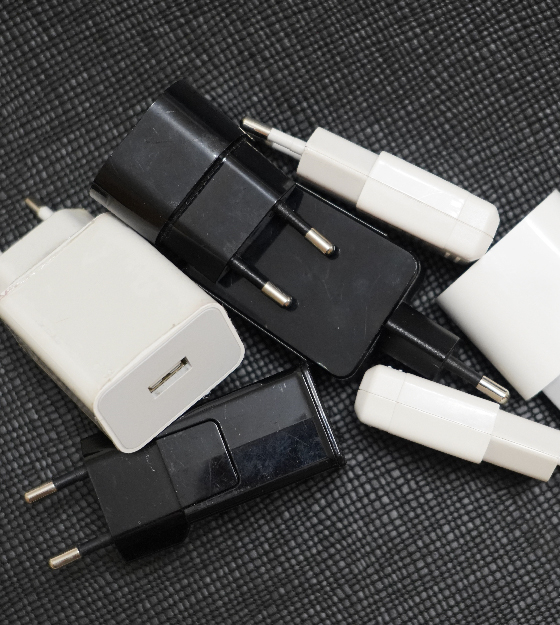
Potential Risks
Most USB chargers display input and output voltage and current ranges, such as input 100-240V~50-60Hz 1A, output 5V/2A. However, the market is flooded with USB chargers of varying quality. If consumers use a charger that does not match the indicated specifications, there’s a risk of damaging their devices. The voltage and current specifications of USB chargers affect charging speed and safety. When there’s a mismatch between the indicated and actual power supply, it can lead to overcharging, overheating, or even device failure.
Real Example
Allion has handled numerous cases testing USB chargers and discovered issues with chargers not meeting specifications during simulated charging. Here are three examples from USB charger output tests:
Example 1: Specified output 5V/2A
Under a 2A load, the voltage remains at 5.33V. The problem here is that during charging, the voltage exceeds the upper limit of ±5% (5.25V). Using this charger poses a risk of damaging electronic products due to excessive voltage, potentially leading to device failure or even fire.
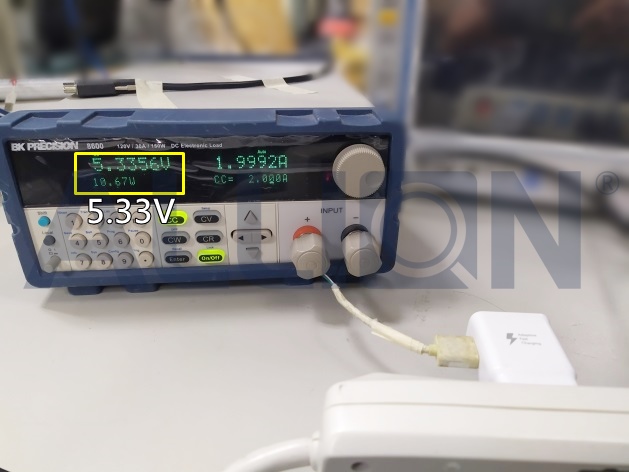
2: Specified output 5V/3A
Under a 3A load, the voltage remains at 4.86V. This example is normal as the voltage stays within ±5% (4.75V~5.25V) during simulated charging.
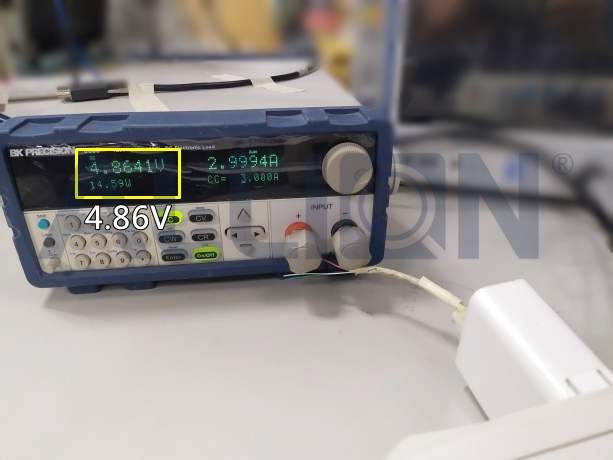
Example 3: Specified output 5V/1A
Under a 0.95A load, the voltage quickly drops below 4.59V. This car USB charger fails to meet the ±5% standard (4.75V~5.25V) at 5V. When a 0.95A load is applied, it may cause devices to be non-responsive due to insufficient power or risk damaging devices and even fire hazards due to overload.
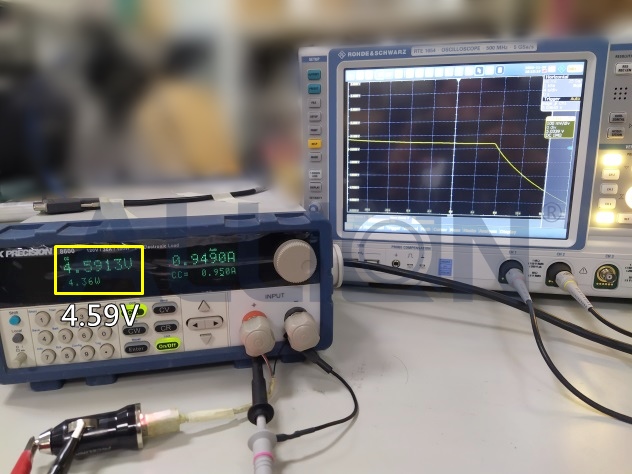
Examples 1 and 3, demonstrate the risk associated with using USB chargers of varying quality without proper verification. Allion recognizes these concerns and offers quality specification advice in procurement or bidding documents for brand manufacturers or enterprises. Additionally, we provide acceptance verification services to ensure double assurance for our customers.
Faster, Easier, Better!
System Verification Solutions
Faster:
Allion has extensive experience in user scenario testing, a professional technical team, and a complete set of power testing environments and equipment to provide corresponding services for USB standards or PD specifications, helping clients accelerate product testing cycles.
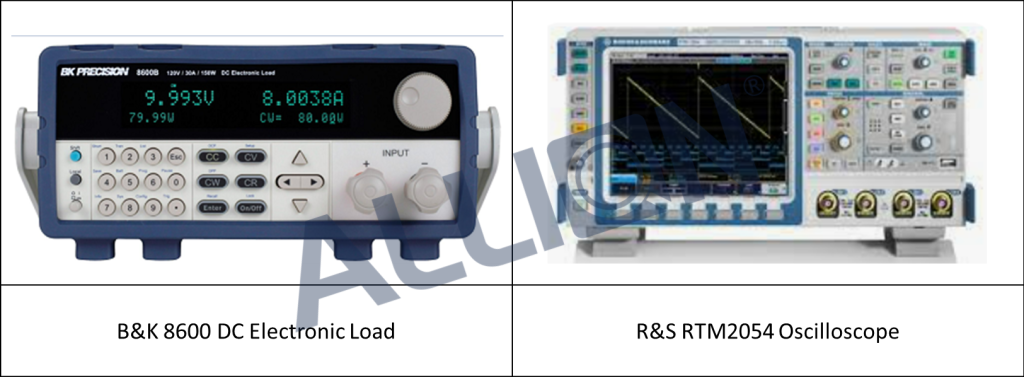
Easier:
With over 30 years of experience, we excel at identifying potential risks in products, offering clients detailed insights into the root causes of issues. Our expert team provides debugging support and solution suggestions, streamlining the process of enhancing product quality and overall performance for you.
Better:
Testing conditions that mimic user scenarios are crucial to identifying potential problems caused by product usage. Unlike traditional reliability standard testing methods, Allion integrates user scenario testing into reliability testing. Through precise simulation of real-world scenarios, we help you discover potential risks your product may face in different scenarios.
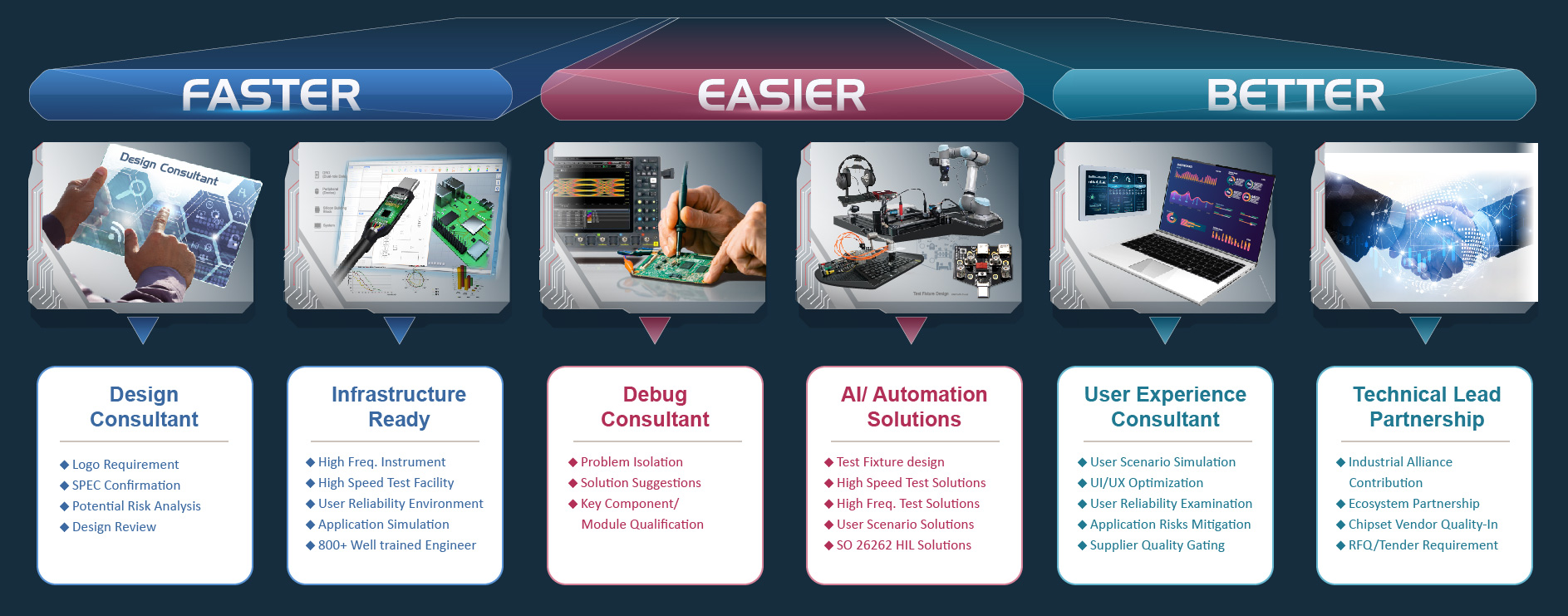
If you have any requirements or questions, please contact us.

































